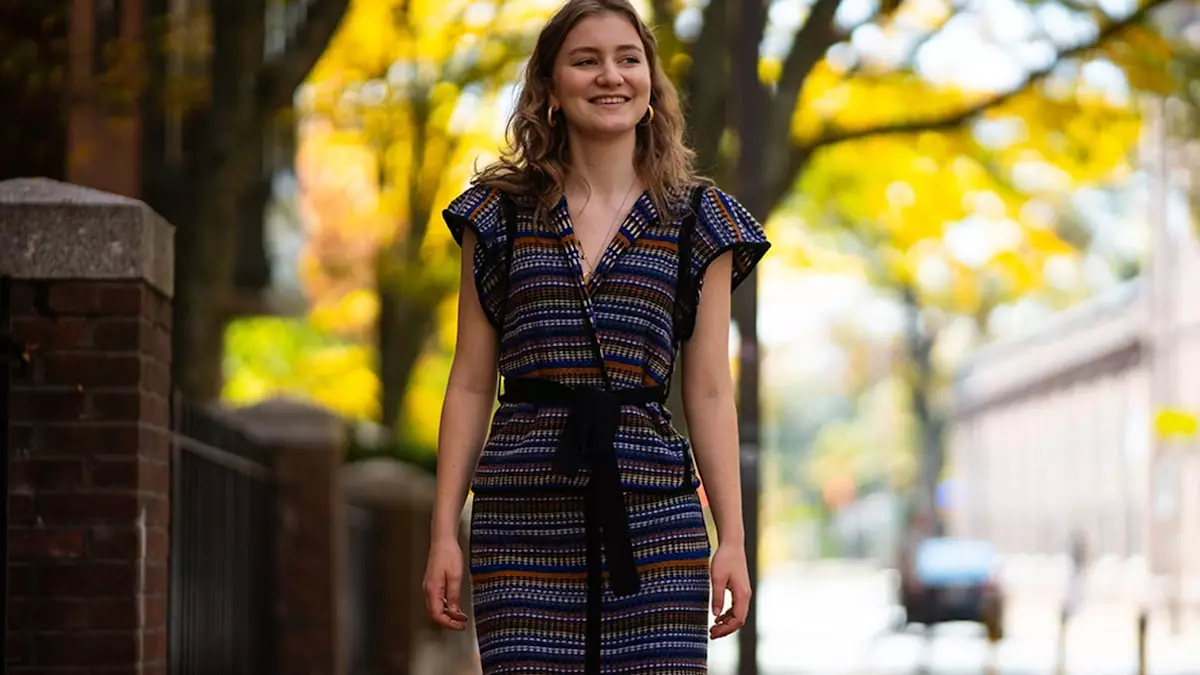As she celebrates her 23rd birthday, Princess Elisabeth of Belgium stands at the threshold of two significant paths: her royal responsibilities and her academic aspirations. Having recently enrolled in a Master’s program in Public Policy at Harvard University, she is not only poised to become the future queen but is also dedicated to developing her knowledge and understanding of governance and public service. This combination of heritage and higher education presents a unique opportunity for her to bridge tradition with modernity, making her one of the more progressive royals in Europe today.
The princess has made headlines not just for her academic choices but also for her contemporary sense of fashion. Photographs recently released by the Belgian royal palace capture her autumn walk through Harvard’s picturesque grounds, styled in a chic striped ensemble with striking knee-high boots. Echoing the fashion history of royals like Kate Middleton, these sartorial choices highlight a blend of elegant simplicity and modern flair. Such comparisons to the Princess of Wales help solidify Elisabeth’s role as a fashion-conscious royal, well aware of her public image and the symbolic responsibilities that come with it.
Elisabeth’s educational trajectory is commendable. Her journey began in Brussels at St John Berchmans College, and her decision to pursue the International Baccalaureate in Wales demonstrates her commitment to global education. Following this, her time at Oxford University cemented her academic foundation, where she earned a degree in History and Politics, equipping her with the tools she will eventually need to navigate the complexities of royal duties. Other European royals, like Princess Leonor of Spain, share similar educational backgrounds, suggesting a trend towards international education among modern royals.
Princess Elisabeth’s royal journey extends beyond academics. In 2013, she was announced as the heir to the Belgian throne, assuming her royal responsibilities alongside her education. Throughout her summer, she partook in various public engagements, including celebrations of Belgium’s National Day, which demonstrates her commitment to her royal duties. Royal responsibilities in the modern age require a balance between public life and personal growth, a challenge that Elisabeth seems eager to embrace.
With three younger siblings and a lineage steeped in history, Princess Elisabeth is not just navigating the expectations that come with her title; she is also forging her path. As she prepares for future roles, including expected attendance at significant events, her experiences at Harvard will likely reshape how she approaches her newfound responsibilities. The public’s warm reception, visible through heartfelt birthday wishes on social media, reflects the growing interest and support for her evolution as a modern royal.
As she moves forward, Princess Elisabeth symbolizes the future of monarchy—one that is deeply interwoven with education, fashion, and public service. The merging of these worlds allows her to represent her country in a progressive light, setting a precedent for future generations of royals in both Belgium and beyond.

